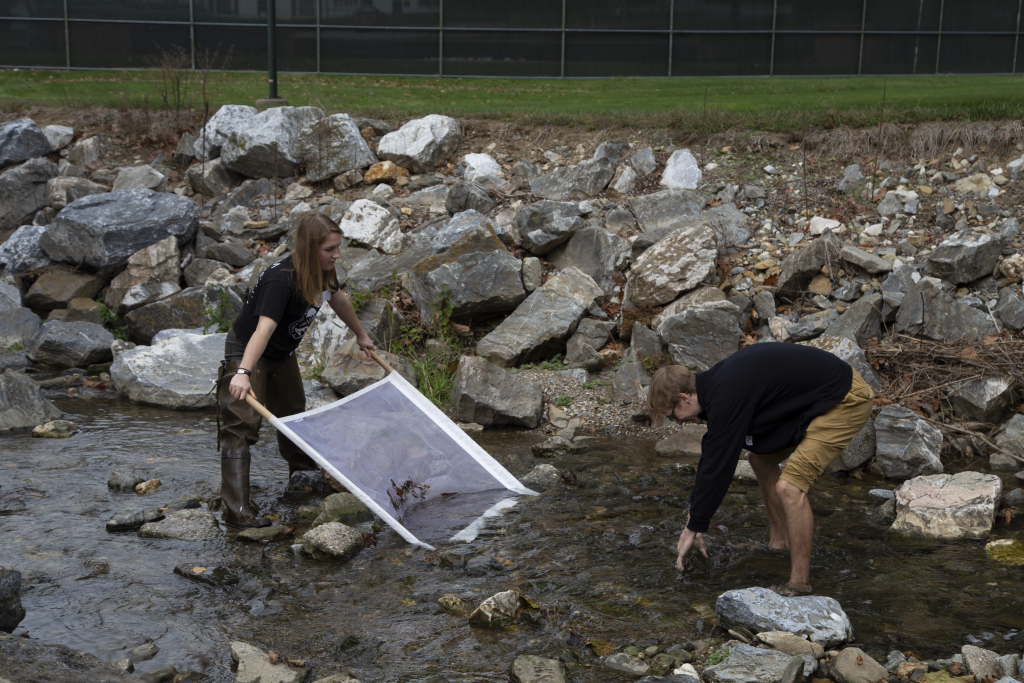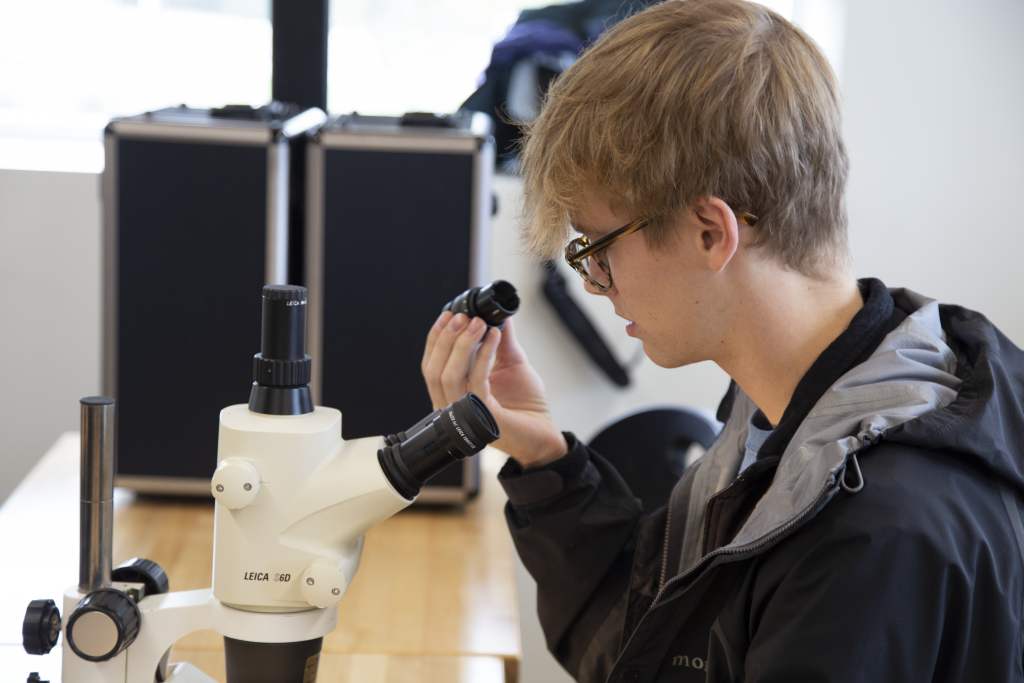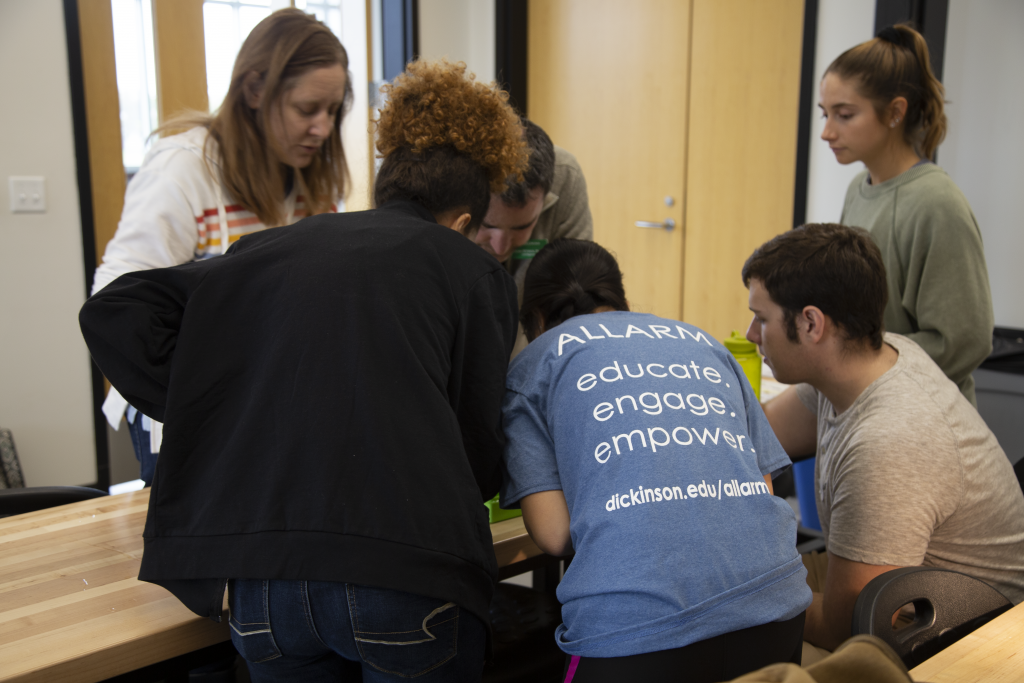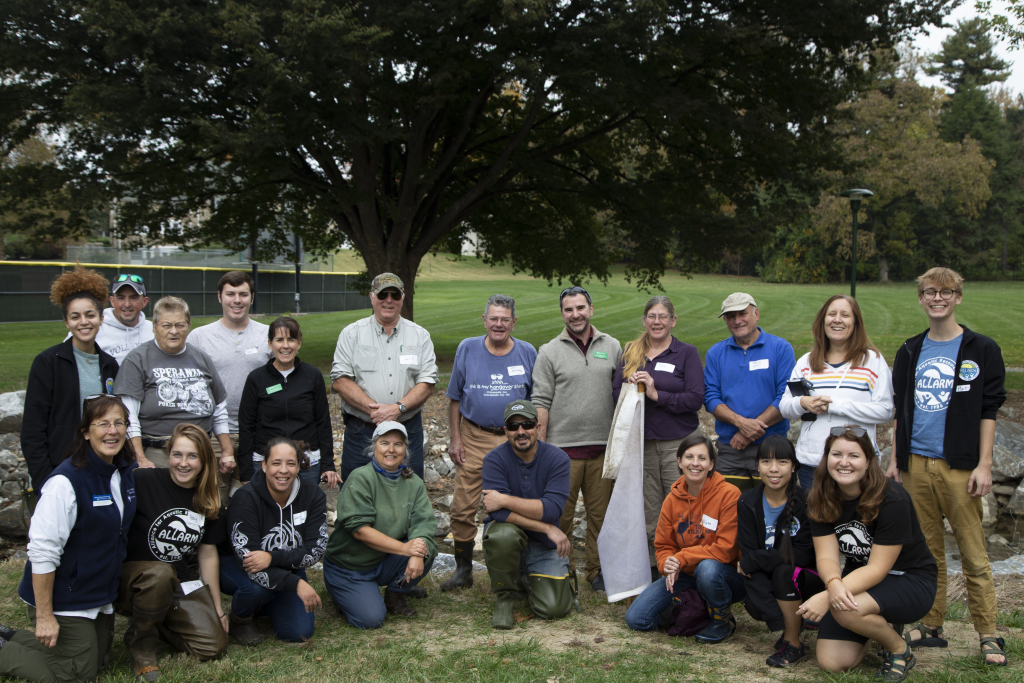ALLARM Members: Helen Schlimm, Hayat Rasul, Abby Kaija, Hiba Aoid, Olivia Spildooren, Matt Zaremba
York Stream Team Macroinvertebrate Workshop, October 26, York, PA
Matt: On October 26th, ALLARMies headed to York College to host a workshop on macroinvertebrate identification and monitoring. After meeting the York county volunteers, Community Science Specialist Helen Schlimm started us off with a presentation on macroinvertebrates and their importance to the stream ecosystem. She explained how macroinvertebrate diversity is a good indicator of water quality and the steps we take in sampling at stream sites. Watershed Coordinator Abby Kaija followed up by giving everyone detailed tips for identification.
Abby: For context, macroinvertebrates are small aquatic animals without a backbone that are visible without a microscope. This was the first workshop on macroinvertebrates for Stream Team! The goal of the workshop was to walk volunteer through the process of monitoring and identifying macroinvertebrates […] I presented for 10 minutes on key identifying features the mayfly vs the stonefly etc.. This “crash course” allowed me to share tips I’d learned from my summer at Stroud Water Research Center with the workshop participants.
Matt: Afterwards, we headed to Tyler Run, which cuts right through the York College campus, to do some hands-on learning! Abby and I demonstrated how to identify sampling sites and safely use a kick-net to collect macroinvertebrates, then we split up into groups so everyone could practice what they had learned. There was a great mix of experience among participants, so everything went smoothly as everyone helped each other out. It was great to see the excitement among volunteers as they found many water pennies, crayfish, and stonefly nymphs. Once all the macroinvertebrates were picked off the kick-nets and sorted into trays, we brought them back to the classroom for further identification. We looked at the macroinvertebrates under microscopes, comparing with samples Abby and I collected previously and Abby cast in plastic to help familiarize volunteers with the physiology of macroinvertebrates not present in our samples.
Abby: This semester at ALLARM, I have dedicated a large portion of my time to prepare materials for this workshop. As a Montgomery Service Leader, my capstone project focused on developing tools for teach volunteers how to identify macroinvertebrates. In September, I wrote a grant to secure funds for casting macroinvertebrates in resin. Matt, a senior watershed coordinator, and I collected samples in the Yellow Breeches and Mountain Creek. The process of preserving and pouring the liquid plastic was an adventure and learning process. I was so inspired to see the samples we had cast being used and identified by volunteers. Volunteers mentioned how it was easier to start identifying with a “square bug cubes”.
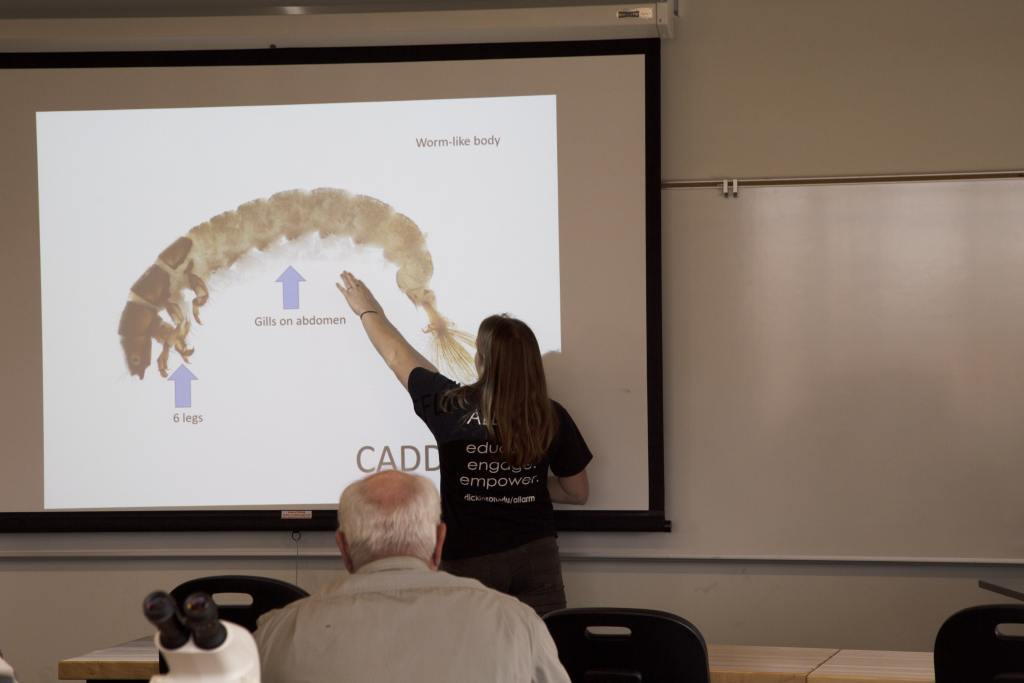
Abby Kaija ’20 presenting on macroinvertebrate identification tips
Matt: Many volunteers had fun looking at the live macroinvertebrates up close, and it was fulfilling to know that they felt more comfortable recognizing small differences between similar specimens. We had to do a little steering to refocus the group on tallying the macroinvertebrates, as their enthusiasm looking at the macroinvertebrates was tangible. With the tally, each group calculated a water quality score for the stream based on each macroinvertebrates’ pollution tolerance, and we came back together to talk about the score.
Hiba: Overall, the ALLARM team’s experience at the York Stream Team Macroinvertebrates Workshop was positive. Some highlights of the event happened during the collection of macroinvertebrates in Tyler Run, seeing as how engaged and absorbed York County Volunteers were in the whole process from getting into the stream for the collection, to sorting macroinvertebrates and identifying them along the way. As this was my second community workshop, I got exposed to a very different experience facilitating an event with experienced volunteers compared to newer participants in our Craighead House Education Event which happened on October 5th. From volunteering in these two events, I was able to have a closer look at the wide array of ALLARM workshops that accommodate and facilitate educational events for people from all sorts of backgrounds, age groups, and levels of experience with stream monitoring. I was also able to see the various techniques and efforts our Community Science Specialist and fellow Watershed Coordinators apply to successfully and simultaneously have a focused direction in the learning process, while also keeping it fun and exciting for our volunteers.
Matt: The volunteers asked many great questions, engaging with us to find solutions to problems they expected with their own streams and voicing their concerns. It was great to talk with volunteers about their experience, and it seemed like many left excited to add this skill to their repertoire and investigate their streams’ macroinvertebrate diversity.
Abby: I think macroinvertebrates provide a valuable platform for learning about water systems as a living system that can be impacted by pollution and thus the life in the stream. After collecting macroinvertebrates at the stream, we were able to dive into live identification and all the volunteers in my group were so engaged! All in all, riding back from the workshop I was proud how I contributed to the Stream Team macroinvertebrate workshop. We were happy with the success of the workshop and excited for more to come.

